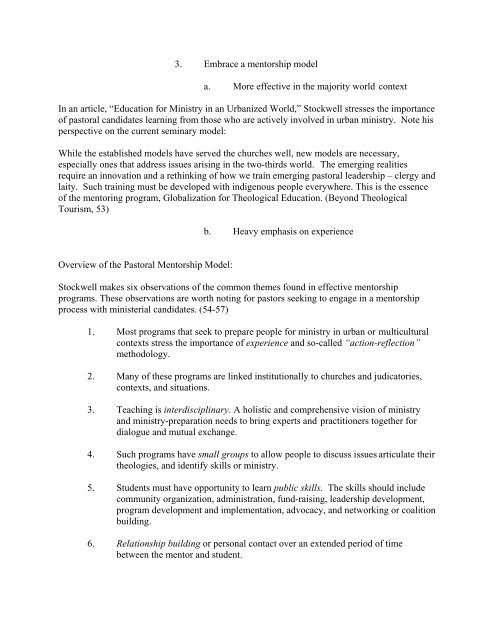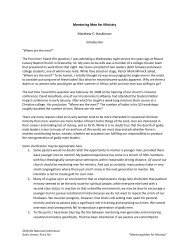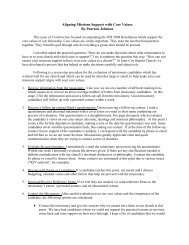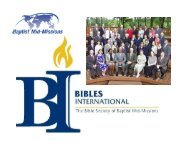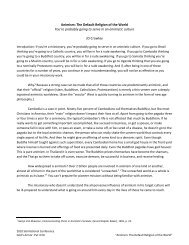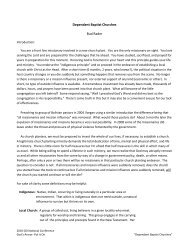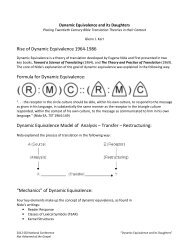Session 1: Why Urban Ministry - Missions Mandate
Session 1: Why Urban Ministry - Missions Mandate
Session 1: Why Urban Ministry - Missions Mandate
You also want an ePaper? Increase the reach of your titles
YUMPU automatically turns print PDFs into web optimized ePapers that Google loves.
3. Embrace a mentorship model<br />
a. More effective in the majority world context<br />
In an article, “Education for <strong>Ministry</strong> in an <strong>Urban</strong>ized World,” Stockwell stresses the importance<br />
of pastoral candidates learning from those who are actively involved in urban ministry. Note his<br />
perspective on the current seminary model:<br />
While the established models have served the churches well, new models are necessary,<br />
especially ones that address issues arising in the two-thirds world. The emerging realities<br />
require an innovation and a rethinking of how we train emerging pastoral leadership – clergy and<br />
laity. Such training must be developed with indigenous people everywhere. This is the essence<br />
of the mentoring program, Globalization for Theological Education. (Beyond Theological<br />
Tourism, 53)<br />
Overview of the Pastoral Mentorship Model:<br />
b. Heavy emphasis on experience<br />
Stockwell makes six observations of the common themes found in effective mentorship<br />
programs. These observations are worth noting for pastors seeking to engage in a mentorship<br />
process with ministerial candidates. (54-57)<br />
1. Most programs that seek to prepare people for ministry in urban or multicultural<br />
contexts stress the importance of experience and so-called “action-reflection”<br />
methodology.<br />
2. Many of these programs are linked institutionally to churches and judicatories,<br />
contexts, and situations.<br />
3. Teaching is interdisciplinary. A holistic and comprehensive vision of ministry<br />
and ministry-preparation needs to bring experts and practitioners together for<br />
dialogue and mutual exchange.<br />
4. Such programs have small groups to allow people to discuss issues articulate their<br />
theologies, and identify skills or ministry.<br />
5. Students must have opportunity to learn public skills. The skills should include<br />
community organization, administration, fund-raising, leadership development,<br />
program development and implementation, advocacy, and networking or coalition<br />
building.<br />
6. Relationship building or personal contact over an extended period of time<br />
between the mentor and student.


